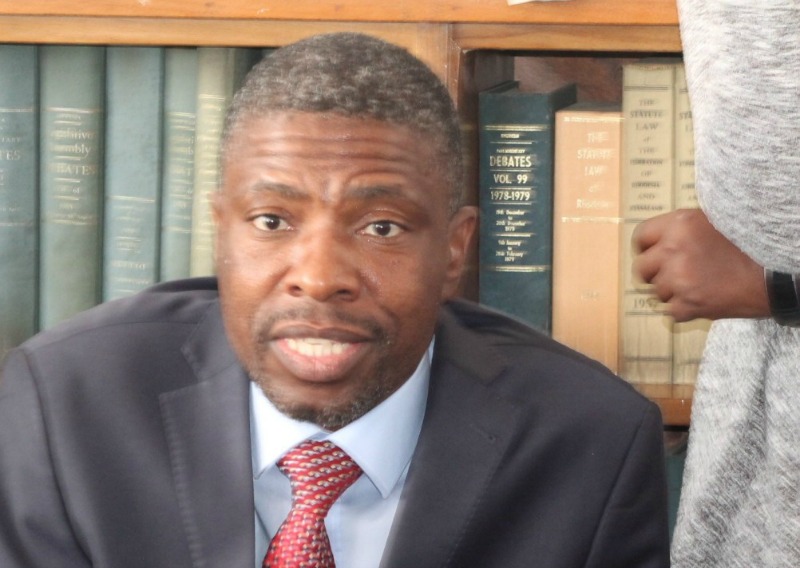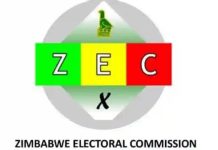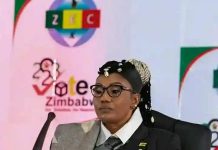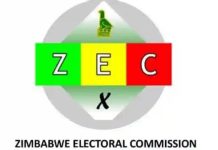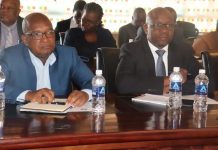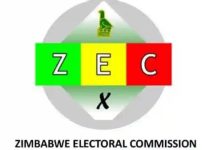THE case in which Zanu PF’s Dexter Nduna has been allowed to sit in Parliament despite having lost the Chegutu West election to the MDC Alliance’s Gift Konjana is a classic example of how the Zimbabwe Electoral Commission (Zec) is willing to preside over poll illegalities, the opposition party has said.
MDC secretary for elections Jacob Mafume told NewZimbabwe.com’s current affairs programme The Agenda on Monday that Nduna continues to stand as Chegutu West MP despite Zec having openly admitted to declaring erroneous results.
“It’s an open and shut case. Nduna lost to our candidate Gift Konjana, Zec admitted but we have the courts hiding behind and waving a few pieces of legislation on a matter they know speaks to the heart of the legitimacy of our systems.
“Zec are not innocent by-standers. They are not coming from outer space. They know they made a mistake; Nduna should not be a parliamentarian. We won in Chegutu West but even with evidence, we have not been allowed to take out position as such,” said Mafume.
He was responding to a question on why the MDC has accepted some results and rejected others.
Meanwhile, Konjana’s lawyer has accused judicial bureaucracy for a series of errors that have allowed Zanu PF’s Dexter Nduna to “masquerade” as the MP for the area.
Nduna, was erroneously declared winner by Zec despite having lost to Konjana in the July 30 polls.
The electoral management body publicly admitted to the error but asked Konjana to approach the courts for recourse.
Konjana’s lawyer Moses Nkomo in an interview after the hearing at the Supreme Court on Monday blamed court officials for the delay.
“The point that was argued is whether or not the Supreme Court can determine an appeal against an electoral petition after an expiry of three months,” Nkomo said.
“Section 182 of the Electoral Act gives the Judge President or the Chief Justice and the bench of the Supreme Court the latitude to determine when the matter can be heard and we did not get any instructions from the Chief Justice as to the set-down of the matter. We did all we did diligently but the matter was set down outside the expiry of three months.”
Nkomo further argued that the law does not have any provision that stops the country’s highest court of appeal from presiding over the issue.
“Our argument is that nothing in the statutes can stop the Supreme Court from making a determination.
“Our appeal was filed on time. It’s the administration part of the equation that was done beyond the three months. That was not our problem. It was the registrar who acted upon the directions of the Chief Justice,” said Nkomo.
Nduna’s lawyer Tawanda Zhuwarara had argued that the right for the Supreme Court to hear Konjana’s appeal had lapsed.
“A litigant in such a matter cannot sit back and assume everything will simply fall in place as if it’s an automatic process. This is not an ordinary appeal and there a Statutory Instrument to that effect.
“Section 182 (3) is specific that the directions given by the law cannot be extended. The legislature says these time limits are immutable and gives powers to this court to make sure that those time limits are met,” said Zhuwarara.
“The Supreme Court has no power to extend beyond three months set if so, it will be in violation of the law. This court cannot give an order that goes contrary to law. Court cannot assume power which is not provided for in the legislature. It cannot assume power that is not there.”
Early this year, Justice Mary Zimba-Dube dismissed Konjana’s petition and lambasted his lawyer for doing a shoddy job which led to the petition’s dismissal.
Just after the polling process of the July 30, 2018 general elections, Zec had initially announced Nduna as the winner with 10 932 votes and Konjana with 10 828 votes.
After realising its error, Zec argued only the Electoral Court could overturn the “wrongly declared result.”
Konjana then filed a petition with the Electoral Court in Harare seeking the nullification of the result after a tabulation error prejudiced him of 120 votes.
But, Justice Zimba-Dube said Nkomo had “paid lip service to the law and the rules governing election petitions” when he drafted the petition.
Supreme Court Judges Antonia Guvava, Barat Patel and Francis Bere sat to hear the argument and reserved judgment.
Justice Guvava also asked why Konjana did not push for his case to be heard expeditiously.
“It was incumbent for the applicant to take action after filling such an action than to sit and relax. If you had an urgent matter which you felt needed to be dealt with expeditiously why then did you relax,” she asked.

